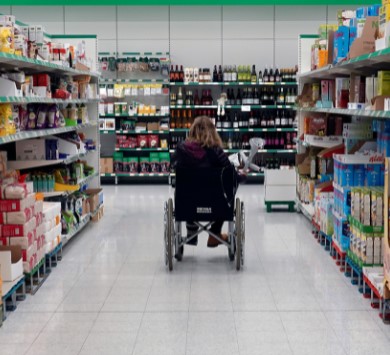The Social Security Administration (SSA) has announced a new proposal that could benefit the lives of millions of disabled Americans who rely on their loved ones to support them with food. Under the proposal, recently published on the Federal Register, the government would no longer cut monthly benefits from those getting assistance for meals and groceries from family or friends
People getting disability from the government from the Supplemental Security Income (SSI) program must inform the SSA if they buy their own food, or get assistance from someone outside of their household. If the amount of food assistance increases or decreases, beneficiaries are required to report the change. If someone begins to help them with their expenses, that must also be reported.
Over 7 million Americans with disabilities receive monthly payments from SSI program, however, the eligibility requirements for the program are strict and have not been changed by Congress in decades. Around 10% of recipients dealt with food/shelter reduction in January 2022, according to the Social Security Administration. The proposal states that while rent help can still cause a reduction, food help can’t.
“We expect that these changes will simplify our rules, making them less cumbersome to administer and easier for the public to understand and follow,” the Social Security Administration said in its proposal.
Changes won’t be seen immediately, as the Social Security Administration must wait for the public response and then create a response to their commentary. Once changes are seen, however, Supplemental Security Income (SSI) recipients will be able to receive the food that they need, without worrying about their benefits being cut.
Administered by the SSA, SSI is a federal program that makes monthly payments to disabled people who have limited income and resources. Benefits are not paid from the Social Security trust funds but instead come from general revenue. There are no benefit provisions for spouses and dependent children.
Determination for SSI benefits depend on various criteria, including having resources and income below specified amounts. Income includes non-cash items received, such as food, clothing or shelter.













